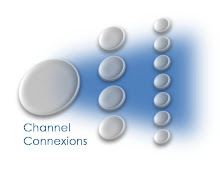Ahhh…election season and the inevitable chorus of “change” is bellowing from the camps of each presidential hopeful. Even our sitting President said that if he were running again, he would base his campaign on change. So why are we so willing to demand change from our elected officials, but reluctant to embrace change at work, or at home?
Two reasons come to mind. The first relates to the level of personal investment involved in driving change. When we elect a President based on a mandate of change, our job is basically done. There is only so much we can do to be actively involved in changing healthcare policy, economic policy, or homeland security. We trust our elected officials to hold true to their campaign promises. We really do not get involved again until elections roll around four years later. Conversely, at work (or home) we are expected to be actively involved in implementing the new ideas, or new process, or new technology. This can be disruptive and there is no guarantee that it will be effective. Besides, we think, how bad are things anyway? Do we really need a change?
That brings me to my second reason for reluctance. Change carries a somewhat negative connotation in the workplace. I prefer to use “renewal” instead of “change”. You change when things are bad, but you renew to do better. In fact, I would argue that even the best of the best go through periods of renewal. Tiger Woods and Jack Welch would not have reached the top levels of success without constantly renewing their approach to golf and business, respectively. The best of the best do not rest on their laurels – they look for better and more efficient ways to achieve success.
I heard a phrase a few years ago that stuck with me: “Relentless discomfort with the status quo.” I wish I could remember where I first heard it so I could give proper credit where it is due, but regardless, it is a great expression of renewal. The best are never really satisfied, never comfortable with the status quo. Our country’s founding fathers, Albert Einstein, Martin Luther King Jr., Henry Ford, and even the person that invented the “sippy cup” all realized that the status quo wasn’t good enough. They knew that through their discomfort they could find a better way.
Changing the status quo comes with plenty of risk and many will pressure you to keep things as they are. Usually the pursuit is worth it and sometimes the payoff is enormous. Every industry is competitive and working to tip the balance in your favor by challenging the status quo can be what separates you from the pack. Are you willing to take the risk?
Monday, April 7, 2008
Subscribe to:
Post Comments (Atom)




No comments:
Post a Comment